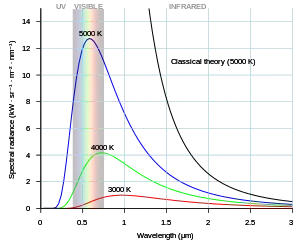Let us try to clear up terminology here:
A black body is classically defined as a perfect absorber of radiation.
No, it is not. The classical description of the perfect absorber also includes an emitter
black body is an idealized physical body that absorbs all incident electromagnetic radiation, regardless of frequency or angle of incidence. A white body is one with a "rough surface [that] reflects all incident rays completely and uniformly in all directions."1
A black body in thermal equilibrium (that is, at a constant temperature) emits electromagnetic radiation called black-body radiation. The radiation is emitted according to Planck's law, meaning that it has a spectrum that is determined by the temperature alone (see figure ), not by the body's shape or composition.
You continue with:
That seems to fit a black hole pretty well.
No, it does not fit the classical, i.e. just General Relativity black hole: it absorbs every impinging particle and emits none.
What is a black hole?
A black hole is a region of spacetime from which gravity prevents anything, including light, from escaping. The theory of general relativity predicts that a sufficiently compact mass will deform spacetime to form a black hole. The boundary of the region from which no escape is possible is called the event horizon. Although crossing the event horizon has enormous effect on the fate of the object crossing it, it appears to have no locally detectable features. In many ways a black hole acts like an ideal black body, as it reflects no light.
BUT here is where quantum mechanics enters the picture :
Moreover, quantum field theory in curved spacetime predicts that event horizons emit Hawking radiation, with the same spectrum as a black body of a temperature inversely proportional to its mass. This temperature is on the order of billionths of a kelvin for black holes of stellar mass, making it all but impossible to observe.

As the temperature of a black body decreases, its intensity also decreases and its peak moves to longer wavelengths. Shown for comparison is the classical Rayleigh–Jeans law and its ultraviolet catastrophe.
In the black body case quantum mechanics fits the data from the radiation of objects and explains why the classical expectations of increasing radiation with frequency ( the ultra violet catastrophe) are avoided.
In the black hole case the classical expectation of zero radiation coming from the black hole is modified by quantum mechanics to Hawking radiation coming from a black hole with a spectrum inversely proportional to the mass of the black hole.
The difference between the black body radiation measured and fitted with Plank's formula that depends only on the temperature of the black body under consideration, and the radiation of the black hole lies in the fact that the real, thermodynamically defined, temperature below the horizon plays no role in defining the spectrum, rather the mass of the black hole defines the spectrum and thus the corresponding temperature of the radiation coming from the black hole, as if it is a black body.
Indeed, if the mass of a black hole is M solar masses, Hawking predicted it should glow like a blackbody of temperature
6 × 10^-8/M kelvins,
A black body in our framework with such a temperature could be approached, with no danger except that of our finger freezing if we touched it. Approaching the horizon of a black hole of that temperature we would be absorbed and turned into our elementary particles.
How do we know Hawking radiation is not an explanation of how radiation can be absorbed by a black hole?
Hopefully the confusion between black body and black hole radiation has been clarified above. Black hole radiation has a spectrum that follows the Planck formula. Radiation is absorbed by a black hole because of the gravitational attraction on the in falling photons the same attraction as with all matter that gets trapped in the gravitational field of the black hole. Quantum mechanics allows kinetically some energy to leave at the horizon of the black hole, at the expense of the gravitational energy of the hole but that has nothing to do with what happens thermodynamically to the particles within the horizon of the black hole, their average kinetic energy which will define the temperature of the in falling matter.

